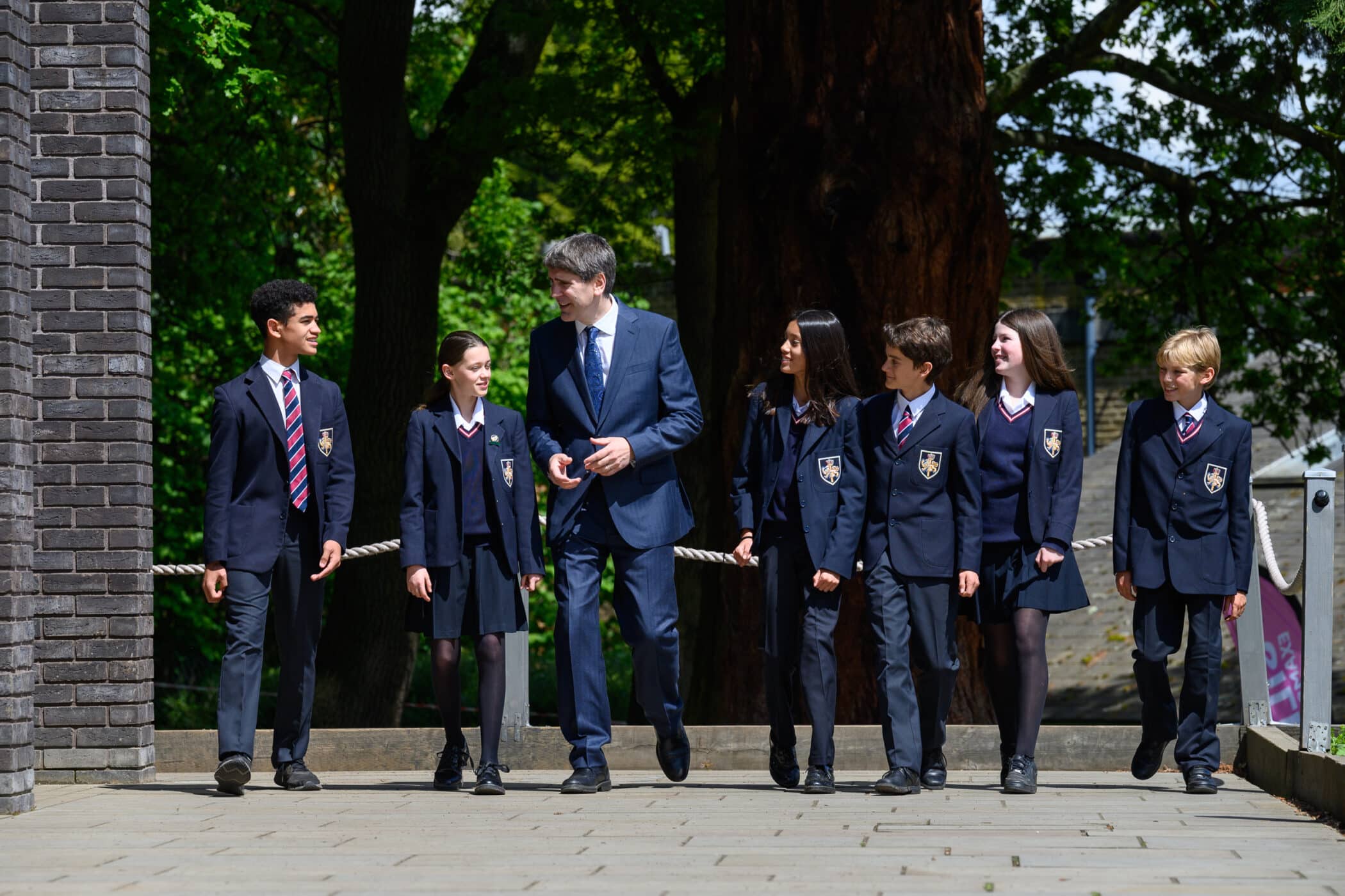
Heads' blog
·17 October 2023
While politicians may have exercised more freedom in Covid times than the laws they created permitted, and delays caused by political activists supergluing themselves to the Cobham service station may cause some of us to curse, the rapid move out of lockdown regulations and the sad horrors in Ukraine serve as pointed reminders of the value of freedom. We are so lucky that we have the ability to effect change and make choices that we enjoy, thanks to the democratic freedoms our ancestors fought for.
Just as the current political elections will listen to our voice via vote this week, we as a school have placed great emphasis on listening to the voices of our pupils in recent months. I emphasise listened, but the importance of ensuring pupils feel heard is a key element here. That does not mean we will always accommodate the changes requested, for example a recent panel of pupils asked if the day could start later, finish earlier and have a longer break, which, despite the valid arguments about the waking and sleeping habits of teenagers, received short shrift if for no reason other than our legal duty. But in an era in which our freedoms had been so curtailed for two years, we are keener than ever to enable two-way conversation and a genuine rumination over the things that concern our pupils most. School ‘rules’ are also being reviewed with a new behaviour policy looking to affirm / celebrate achievements more widely in the school to be launched in time for the new school year.
At times giving pupils an effective forum for their voice can feel tough. Indeed, there are times when you realise comments you made have not been as popular as you assumed, but equally enabling pupil voice helps to understand what works, what doesn’t work and how we can do even better. For example, having moved form and assembly times to midday this year, we will return the timing to the beginning of the day in September. Like new meals, you don’t know if you like something until you have tried it, but there comes a time where you have well and truly tasted it and can conclude you would prefer something else. Feedback has also returned our attention to uniform, where empowering our pupils to explain why they have not liked certain elements has made it far easier to respond effectively. Whether it be curriculum provision, the importance of a gym or pupil safety, our decision making is always better where we have taken a 360° view on how things could work.
In the same way parliament has recently delayed the age at which my 16 year old can get married by two years (he had no immediate plans), and our latest pay packets have been dented by a rise in NI to ensure social care is sustainable, there are times when headteachers take decisions they are confident are right even if they cause apprehension at first. One such example is our move from same-year forms of 21 to smaller, vertical tutor groups with three or four children from each year group under a closer pastoral structure. Unsurprisingly, the change has raised caution from some of my Year 9 and 10 pupils, but behind those raised eyebrows are the unanswered questions for which the coming months will be key.
Like any society, a school community depends upon rules, but it relies too on freedoms and an ability to feel heard, effect change and know too that if things are not as they should be, we retain our appetite to adapt and improve.